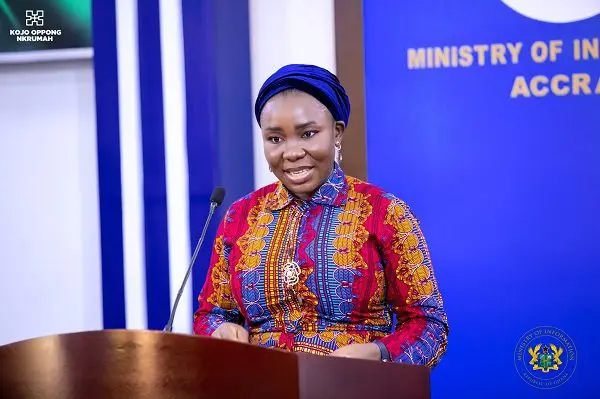The Government of Ghana has instituted mechanisms to project journalists, a Deputy Minister of Information, Fatimatu Abubakar, has said.
She explained that it is not the doing of government that some over zealous police officers manhandle journalists even their the administration acknowledge the impact of the actions of the security officers on the press freedom ranking.
Speaking at the World Press Freedom Day, she said “Out of some overzealous policemen, in handling cases of some journalists suspected to be involved in crimes are not the doing of government. Government however, acknowledging that these events negatively affect Ghana’s ranking, has instituted the coordinated mechanism for the safety of of journalist, ran by the National Media Commission, so that some of these issues can be addressed.”
She added “Government is putting in the necessary steps including taking inputs from technocrats and industry experts to facilitate the passage of the Broadcasting bill.”
President of the Ghana Journalists Association (GJA), Roland Affail Monney for his part said that the media serves as the oxygen for Ghana’s democracy.
He explained that if the democracy of Ghana is not been torn in many places then it is an indication of a vibrant Ghanaian media.
Speaking at the Press Freedom day celebrations, he asked the law enforcers to deal with person who attack journalists.
“The media serves as the oxygen for democracy, so if our democracy is not in tatters, even though our ranking is a source of concerns, it means there is a glimmer of hope that if we do things right, if our law and order community would apply the law regardless of who the perpetrators are,” he told TV3 on the sidelines of the event.
Meanwhile, Ghana has performed poorly in the latest press freedom ranking, dropping 30 places from 2021 to rank 60th on World Press Freedom Index 2022 with a score of 67.43.
The report cited government’s intolerance, a situation that forced journalists to engage in heavy self-censorship in the line with their work.
“Although the country is considered a regional leader in democratic stability, journalists have experienced growing pressures in recent years. To protect their jobs and their security, they increasingly resort to self-censorship, as the government shows itself intolerant of criticism,” the World Press Freedom indicated in its latest ranking released May 3,2022.
It added: “The 2019 information access law authorises journalists to demand information of national interest. However, a clause in the law allows a fee to be charged if the information requested is in a language other than English – a provision used to deny journalists’ access to the information they seek”
“In addition, one third of media outlets are owned by politicians or by people tied to the top political parties. The content they produce is largely partisan. In Ghana, most media outlets face financial problems, reflected in low salaries and poor working conditions for journalists. Frequently, new newspapers are launched only to fold in a few months, due to inability to meet production costs.
“State-owned media, for their part, benefit from government advertising contracts and payment for publishing news items. Government advertising is awarded through a non-transparent and inequitable process”.
Source: 3news.com|Ghana

